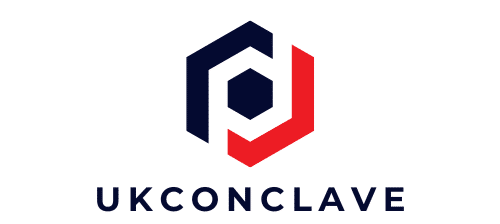How Can Personal Finance Apps Improve Financial Literacy in the UK?

In this world of rapid technological development, personal finance apps are revolutionising the way people manage their money. They are making finance more accessible and comprehensible for everyone. But, how can these applications specifically improve financial literacy here in the UK? Let’s delve into this subject to understand the transformative potential of these powerful digital tools.
The Current State of Financial Literacy in the UK
Financial literacy is the understanding of various financial areas including managing personal finances, money and investing. It encompasses the knowledge necessary to make informed judgements and effective decisions about money management.
A lire en complément : How Can Interactive E-books Enhance Children’s Learning Experiences?
In the UK, the level of financial literacy has been a cause for concern. Various studies and surveys have indicated that a significant portion of the population lacks basic financial knowledge. They struggle to understand fundamental financial concepts such as interest rates, inflation, and financial risk diversification. This lack of understanding can lead to poor decision-making and can have severe consequences such as chronic debt and financial instability.
Clearly, there is a pressing need to improve financial literacy in the UK. This is where personal finance apps come in. They can play a crucial role in spreading financial education and help people make smarter decisions about their money.
A voir aussi : Luxury Oktoberfest packages: how to celebrate in style?
How Personal Finance Apps can Help
Personal finance apps are a product of technological advancement and the rapid market development in the financial sector. These mobile software applications have a range of features that can foster financial literacy.
Firstly, many of these apps offer educational content tailored to the user’s financial situation. They provide articles, videos, and quizzes on various financial topics. These resources can help individuals learn at their own pace, in their own time, and in a way that suits them.
Personal finance apps also provide real-time data on a user’s financial situation. They help users track their spending patterns, plan their budget, and set saving goals. By giving users a clear picture of their finances, these apps enable them to understand where their money is going and how they can better manage it.
Personal Finance Apps Features That Foster Financial Literacy
There are specific features in personal finance apps that can significantly enhance financial literacy. Some of these features include:
Budgeting Tools: These tools help users create a budget and stick to it. They provide insights into spending habits and offer suggestions for where to cut back. By using these tools, individuals can gain a better understanding of how to allocate their money effectively.
Investment Platforms: Some personal finance apps offer investment platforms where users can invest their money. These platforms often come with educational resources to help users understand investment strategies and the financial market.
Automated Savings: Many apps offer tools to automate savings. These tools can help users understand the importance of regular saving and how it can contribute to financial security.
Credit Score Information: Some apps provide information about credit scores and how they are calculated. This can help users understand how their financial behaviour affects their creditworthiness.
The Role of Developers in Promoting Financial Literacy through Apps
The developers of personal finance apps have a vital role to play in promoting financial literacy. By designing features that educate users, they can help spread financial knowledge.
Developers should aim to make their apps as user-friendly as possible. The easier an app is to use, the more likely users are to engage with its educational resources. Developers should also ensure that their apps provide accurate, up-to-date information. Misleading or outdated information can do more harm than good.
In addition, developers can collaborate with financial professionals to ensure that the educational content provided in their apps is of high quality. They can also incorporate features that encourage users to set and work towards financial goals, as goal-setting can be a powerful motivator for learning.
The Future of Financial Literacy in the UK
With the rise of personal finance apps, the future of financial literacy in the UK looks promising. These apps have the potential to reach a wide audience and make financial education more accessible.
The financial landscape is continually changing, and it is essential for individuals to stay informed to navigate it successfully. Personal finance apps, with their educational features and user-friendly interfaces, can provide the necessary guidance.
While personal finance apps alone may not be enough to solve the issue of financial literacy, they are undoubtedly a significant part of the solution. As more people start to use these apps and reap the benefits they offer, we can hope for a future where everyone has the knowledge they need to manage their money effectively.
The Inherent Challenges and Opportunities for App Development in the Finance Sector
App development in the finance sector is a rapidly growing field. However, it presents a unique set of challenges. Developers must ensure that their apps are secure, user-friendly, and compliant with financial regulations. These challenges, while significant, also present opportunities.
Security is a paramount concern in the development of any finance app. Users need to trust that their personal and financial information is safe. To build this trust, developers must incorporate robust security measures into their apps. This includes encryption, secure user authentication, and regular security updates.
However, while security is critical, it should not come at the expense of user-friendliness. A finance app can have the best security features in the world, but if it’s complicated and difficult to use, users will be less likely to engage with it. Therefore, developers need to strike a balance between security and usability. This involves creating intuitive user interfaces and providing clear, easy-to-understand instructions on how to use the app’s features.
Compliance with financial regulations is another significant challenge for developers. The finance sector is heavily regulated, and these regulations can vary widely from country to country. This means that developers must have a deep understanding of the financial regulations in their target markets. They must also be prepared to update their apps regularly to keep up with changes in these regulations.
These challenges present opportunities for developers. By creating secure, user-friendly apps that comply with financial regulations, developers can gain a competitive edge. They can also contribute to improving financial literacy by making finance more accessible and understandable.
Addressing the Financial Literacy Gap Among Young People in the UK
There is a significant financial literacy gap among young people in the UK. Many young people lack the knowledge and skills they need to make informed financial decisions. This can lead to poor money management and financial instability later in life.
Personal finance apps can play a vital role in addressing this gap. By providing educational content and tools tailored to young people, these apps can help them build personal financial management skills.
Features such as budgeting tools and real-time tracking of spending can give young people a clearer picture of their financial situation. They can see where their money is going and learn how to manage it more effectively.
Automated savings features can also be beneficial. These features can help young people understand the importance of saving and how it can contribute to financial security. They can set savings goals and track their progress towards these goals in real time.
Another important feature is financial education. This can be in the form of articles, videos, or quizzes on various financial topics. By engaging with this educational content, young people can deepen their understanding of financial concepts and how they apply to their own lives.
Conclusion
In conclusion, personal finance apps have the potential to significantly improve financial literacy in the UK. They provide a convenient, accessible way for people to learn about finance and manage their money.
However, the success of these apps depends largely on their design. Developers need to ensure that their apps are secure, user-friendly, and compliant with financial regulations. They also need to tailor their apps to their target audience. For young people in the UK, this might mean incorporating features such as budgeting tools, real-time spending tracking, automated savings, and financial education.
The rise of personal finance apps represents a significant opportunity for financial education in the UK. By embracing this opportunity, we can hope to close the financial literacy gap and help people make more informed financial decisions. This is crucial for individual financial stability and for the overall health of the UK economy.
